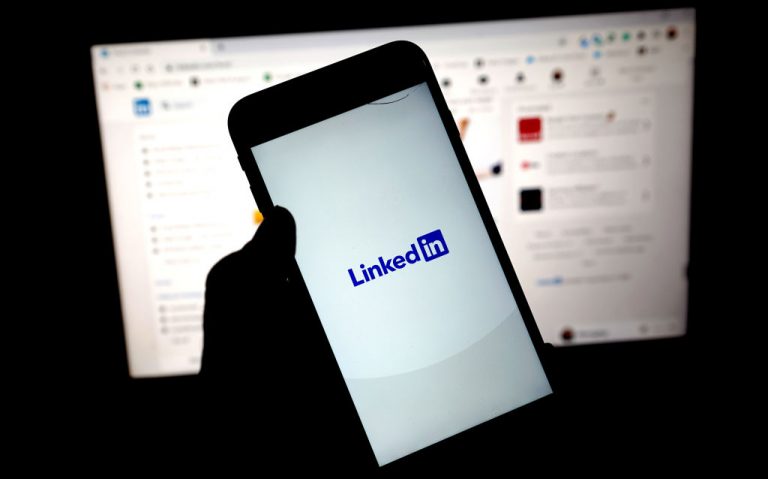Peter Humphrey, a British citizen and vocal critic of the Chinese Communist Party (CCP), was temporarily censored by LinkedIn. His account was frozen, and his comments criticizing Beijing were removed from the platform.
Previously, while working in China in 2013, Humphrey was arrested by the regime for “illegally obtaining” the data of Chinese citizens. Authorities forced him to confess on tape, and the footage was broadcasted on state-backed CCTV News.
In April, LinkedIn notified Humphrey that several of his comments about the Chinese government and state-backed media outlet China Global Television Network (CGTN) were removed because they were considered to be “spams and scams” or “bullying and harassment,” Bloomberg reported.
When the 65-year-old tried to log in to his LinkedIn account on April 26, he was notified that his account was restricted due to violating the platform’s Terms of Service. Humphrey accused LinkedIn of “kowtowing” to the CCP.
“This highlights the partial control that China has over LinkedIn… They made me a non-person. Only under pressure of journalists calling did they draw in their horns and reverse course,” he said to Bloomberg.
Success
You are now signed up for our newsletter
Success
Check your email to complete sign up
While Humphrey’s account was eventually reinstated, some of his comments that were deleted were never restored. A spokesperson from the company said that Humphrey’s account suspension was “an error.”
LinkedIn’s flawed history
LinkedIn has a history of stirring up controversy. Back in Dec. 2018, LinkedIn censored Humphrey’s profile in China following a request from the Chinese government. When media outlets questioned the censorship, a LinkedIn spokesperson responded that based on an internal review, the suspension was found to be an error. His profile was then fully restored.
In March this year, Chinese internet regulator Cyberspace Administration of China criticized LinkedIn executives for failing to control political content on the platform. The company was asked to complete a self-evaluation, provide a report to a regulatory organization, and suspend new sign-ups for a period of 30 days. Later that month, LinkedIn temporarily paused new member sign-ups in China in “compliance with local law” and “adhering to Chinese government regulations.”
LinkedIn, which previously worked with Beijing’s municipal government and the Communist Youth League, is the only major U.S. social media company allowed to operate in China because of its compliance with government censorship requests. After entering the Chinese market in 2014, the company partnered with Sequoia China and China Broadband Capital, operating its service under the name Lingying.
New York-based Fengsuo Zhou, a student leader during the 1989 Tiananmen pro-democracy protests, was briefly censored by LinkedIn in 2019 in deference to Beijing’s requirements. Her account was restored only after the media reported on the issue. In a tweet, Zhou warned that “this is how” censorship has spread from Communist China to Silicon Valley.
In June 2020, Peter Fam, a solicitor at Legal Aid NSW in Australia, revealed that one of his posts on racism was censored by LinkedIn. “What concerned me the most was not that my post had been censored, but that I had not been notified of the censorship. This confirmed that LinkedIn censors posts without notifying the author of that post that it has been censored. To the poster, everything looks normal, but to everybody else, the post does not exist,” he stated.
Microsoft, which owns LinkedIn, has worked on projects with the Chinese military in the past, according to a report by Financial Times. Between Mar. 2018 and Nov. 2018, academics at Microsoft Research Asia in Beijing co-authored three papers with researchers affiliated with China’s National University of Defense Technology, which is controlled by the Chinese regime’s Central Military Commission.
Regarding political interests, the co-founder of LinkedIn, Reid Hoffman, is one of the most prolific donors to the Democratic Party. He has contributed at least one million dollars to Joe Biden’s presidential campaign. At a CNBC event in 2017, Hoffman referred to Trump as a “worse than useless” president.
















